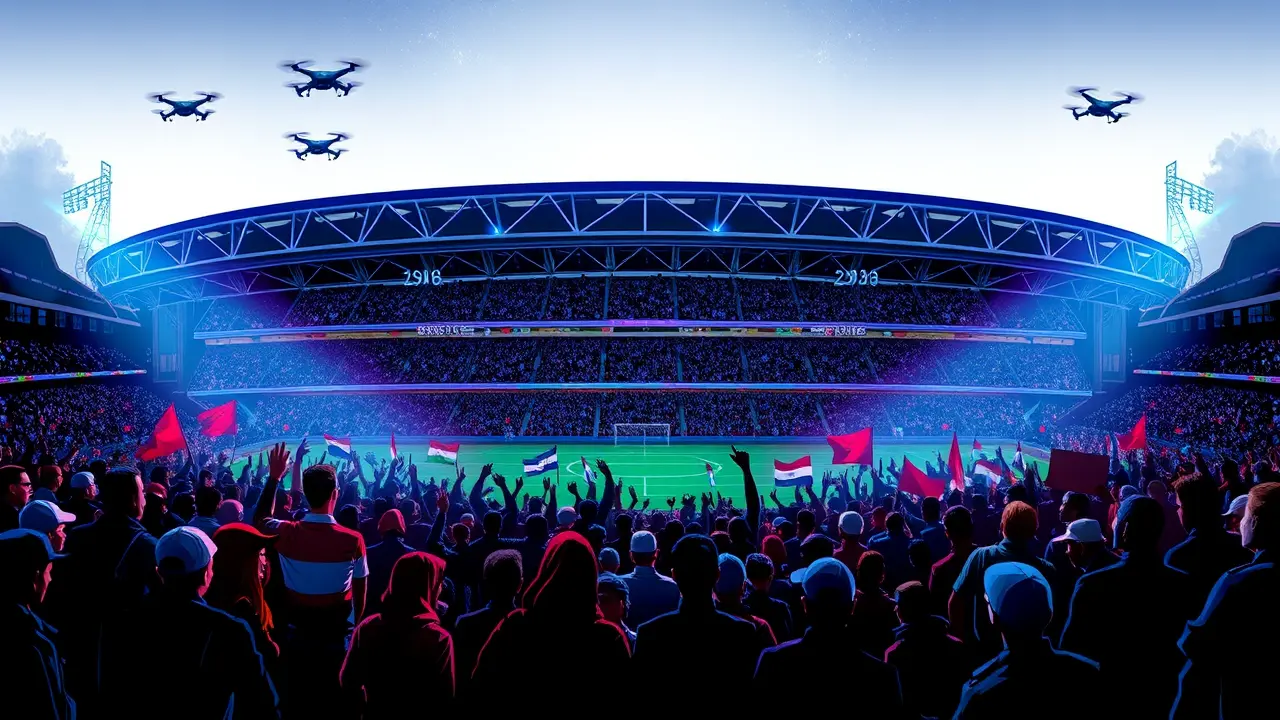- News
- protests-movements
- Over 10,000 protesters expected in Udine ahead of Italy vs Israel amid heightened security
Over 10,000 protesters expected in Udine ahead of Italy vs Israel amid heightened security
The ancient city of Udine, normally a serene backdrop to the tactical chess matches of Serie A, finds itself transformed into a fortress of conflicting ideologies and raw emotion, a stage where the beautiful game becomes inextricably tangled with the ugly realities of global conflict. As the Dacia Arena prepares to host Italy's World Cup qualifier against Israel, the air is thick not with the usual pre-match anticipation of tifosi chanting and the smell of grilling sausages, but with the palpable tension of a city bracing for impact.The headline figure—over 10,000 protesters expected from a coalition of 350 diverse associations—isn't just a statistic; it's a powerful testament to how football, so often an escape, can become the most potent amplifier for political dissent. The protests, born from the ongoing conflict in Gaza, have pushed the Italian Football Federation (FIGC) into a diplomatic minefield, facing fervent calls for a boycott it has thus far steadfastly refused.This refusal isn't merely an administrative decision; it's a statement of principle, a belief in sport's apolitical sanctity that is being severely tested on the global stage, echoing the difficult positions federations from other nations have faced when politics violently intrudes upon the pitch. While a whisper of an imminent ceasefire has momentarily dialed down the city's fever pitch, the protest organizers remain unmoved, their resolve hardened, their mission clear: to use this global platform to demand what they frame as a fundamental human pursuit—justice and lasting peace.In response, the Italian state has unveiled a security apparatus of almost theatrical proportions, a stark reminder of the perceived threat level. Imagine a thousand police officers, Carabinieri, Guardia di Finanza, and army personnel forming a human cordon around the stadium, their presence amplified by the ominous whir of helicopters and the silent, watchful gaze of drones scanning the crowds from above.The approach to the Dacia Arena, a route normally walked with scarves and songs, is now a labyrinth of concrete barriers and crowd-control filters, a scene more reminiscent of a G7 summit than a football match. This isn't just about preventing scuffles; it's a full-scale anti-terrorism operation, approved at the highest levels of government, designed to create a sterile bubble around the ninety minutes of play.The imagery is jarring: the same hallowed turf where legends like Alessandro Del Piero have weaved their magic is now protected by the same tools used to secure international diplomatic zones. One cannot help but draw parallels to other moments where football and politics have violently collided—the Heysel disaster, the Munich Olympics—tragedies that forever scarred the sport and led to seismic shifts in security protocols.The authorities in Udine are clearly operating with the ghost of those disasters looming large, determined to write a different, safer chapter. Yet, for all the military-grade planning, the most volatile element remains the human heart.Inside the stadium, the players, particularly those on the Israeli side, will be carrying an immense, invisible weight, representing a nation under a global spotlight amid profound tragedy. How does a midfielder focus on a simple pass when his country is a focal point of such international anguish? For the Azzurri, the challenge is different: navigating a match where their every tackle, every goal, will be interpreted through a political lens they never asked for. The beautiful game's inherent simplicity is being suffocated by complexity, and this qualifier in Udine is poised to become less a sporting contest and more a global Rorschach test, revealing deep fissures in our world that no amount of security barricades can truly mend.
It’s quiet here...Start the conversation by leaving the first comment.
